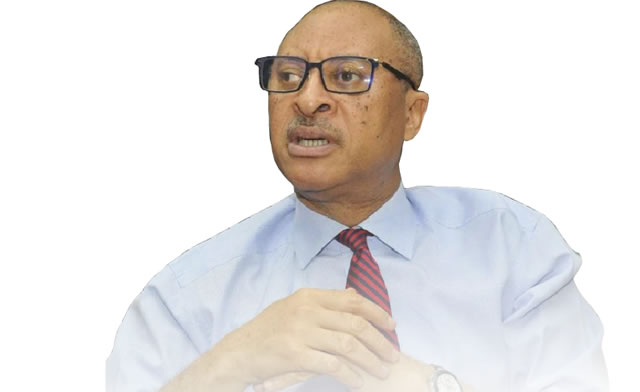Paragraph 1: Renunciation of Political Office and Public Contracts
Professor Pat Utomi, a prominent figure in Nigerian political economy, has unequivocally declared his withdrawal from seeking any political office in the country. Furthermore, he has pledged to abstain from accepting any government appointments or contracts. This announcement, made during a televised interview, signals a significant shift in Utomi’s approach to public service. He emphasized that his primary motivation is now the well-being of the next generation, and he seeks to distance himself from accusations of self-interest or pursuit of personal gain. By rejecting the traditional avenues of political involvement, Utomi aims to focus his efforts on alternative means of contributing to national development and fostering democratic accountability.
Paragraph 2: Embracing the Concept of a Shadow Government
Professor Utomi expressed strong support for the establishment of a shadow government, characterizing it as a vital instrument for enhancing democratic governance. He argues that such a body, composed of concerned citizens, can provide a structured platform for holding the government accountable to its promises and obligations. Far from being undemocratic, Utomi views this initiative as a legitimate expression of civic engagement, enabling citizens to actively participate in shaping the political landscape. By offering alternative policy proposals and scrutinizing government actions, a shadow government can contribute to a more informed and responsive political system.
Paragraph 3: The Afrobarometer: A Gauge of Democratic Sentiment
Utomi urged Nigerians to consult the Afrobarometer, a comprehensive survey that has tracked public opinion across African countries since 1999. This data-rich resource, he believes, provides crucial insights into citizens’ perceptions of democracy and its effectiveness. The Afrobarometer offers a longitudinal perspective on democratic trends, allowing for an analysis of evolving public attitudes toward governance and political participation. By understanding the nuances of public sentiment captured in the Afrobarometer, Nigerians can gain a deeper understanding of the challenges and opportunities facing their democracy.
Paragraph 4: Disillusionment with Democracy: A Continental Trend
Analyzing the Afrobarometer findings, Utomi pointed out a prevalent trend across Africa: while citizens generally maintain a belief in the principles of democracy, they are increasingly disillusioned by its practical implementation. This growing discontent stems from the perceived failure of democratic systems to deliver tangible improvements in their lives. The data indicates that many Africans feel marginalized and excluded from the political process, leading to a sense of apathy and disengagement. This widespread disenchantment poses a significant threat to the long-term stability and legitimacy of democratic institutions.
Paragraph 5: The Need for Democratic Renewal and Revival
In light of the Afrobarometer findings, Utomi advocates for a comprehensive effort to revitalize and strengthen democratic practices in Nigeria and across Africa. He emphasizes the urgency of addressing the underlying causes of public disillusionment and restoring faith in the democratic project. This revitalization, he argues, should focus on enhancing citizen participation, promoting transparency and accountability, and ensuring that democratic institutions are genuinely responsive to the needs of the people. Utomi calls on all stakeholders, including political parties, civil society organizations, and individual citizens, to embrace this call for democratic renewal.
Paragraph 6: Reclaiming the Purpose of Democracy: Service to the People
Utomi lamented the erosion of democratic ideals in Nigeria, arguing that the focus has shifted from serving the public interest to pursuing personal gain and power. This deviation from the fundamental principles of democracy, he warned, undermines the legitimacy and effectiveness of governance. He called for a return to the core values of democracy, emphasizing the need for political leaders to prioritize the well-being of their constituents and uphold the principles of public service. Only by reclaiming the true purpose of democracy, Utomi contends, can Nigeria and other African countries hope to achieve sustainable development and social justice.














